About Be Whale Wise
Be Whale Wise is a partnership of governmental agencies, non-profits and other stakeholders in British Columbia and Washington state to research, implement and educate regarding laws and best vessel practices to protect the unique and fragile marine resources found in the area. The partnership began in 2001 and continued to grow after the United States and Canada listed the Southern Resident killer whale population as Endangered in 2005. Today, the Be Whale Wise partnership helps create consistent messaging and education for vessel operators, coastal residents, and tourists to the region. Be Whale Wise partners accomplish this goal by educating boaters on shore, then reinforcing the message on-the-water around marine mammals.
Be Whale Wise is coordinated by the core partners: National Oceanic and Atmospheric Administration, Department of Fisheries and Oceans Canada, Washington Department of Fish & Wildlife, Transport Canada, the United States Coast Guard, CETUS Research and Conservation/Straitwatch, and The Whale Museum/Soundwatch. Other partners that assist in the development and distribution of the program include: Marine Education and Research Society, Ocean Wise, Seattle Aquarium, Georgia Strait Alliance, BC Parks, Killer Whale Tales, and Orca Network.
Core Partners
NOAA: https://www.noaa.gov/
Department of Fisheries and Oceans Canada: http://www.dfo-mpo.gc.ca/index-eng.htm
Transport Canada: https://tc.canada.ca/en/
WA Department of Fish & Wildlife: https://wdfw.wa.gov/
The U.S. Coast Guard: https://www.uscg.mil/
CETUS Research and Conservation/Straitwatch: https://www.cetussociety.org/straitwatch
The Whale Museum: https://whalemuseum.org/
Soundwatch and Straitwatch Boater Education Programs
Soundwatch was created by The Whale Museum in 1993 to mitigate vessel risk away from orca whales and other marine wildlife in the Salish Sea through education, research and monitoring. Soundwatch does this through educating boaters before they leave the dock, then reinforcing the learning on the water. Soundwatch crew and volunteers are on the water every day during the summer around whales educating vessels on what they are looking at and what the guidelines are pertaining to the whales. Soundwatch also collects valuable data on vessel and whale behavior that helps inform managers and other researchers on best practices.
Straitwatch is the Canadian counterpart, run by the Cetus Research & Conservation Society. This stewardship program operates similarly to Soundwatch in waters around Victoria, Southern B.C., and the Gulf Islands.
If you are approached by Soundwatch or Straitwatch, it doesn’t always mean you’ve done something wrong. We like to talk to everybody and just answer any questions you may have. We know that private vessel don’t carry a naturalist on board, so if you have answer questions about what you’re seeing on the water let us know.
To find out more about Soundwatch, read our research reports, or learn how to volunteer please visit, https://whalemuseum.org/pages/soundwatch-boater-education-program
To find out more about Straitwatch, please visit https://www.cetussociety.org/straitwatch
